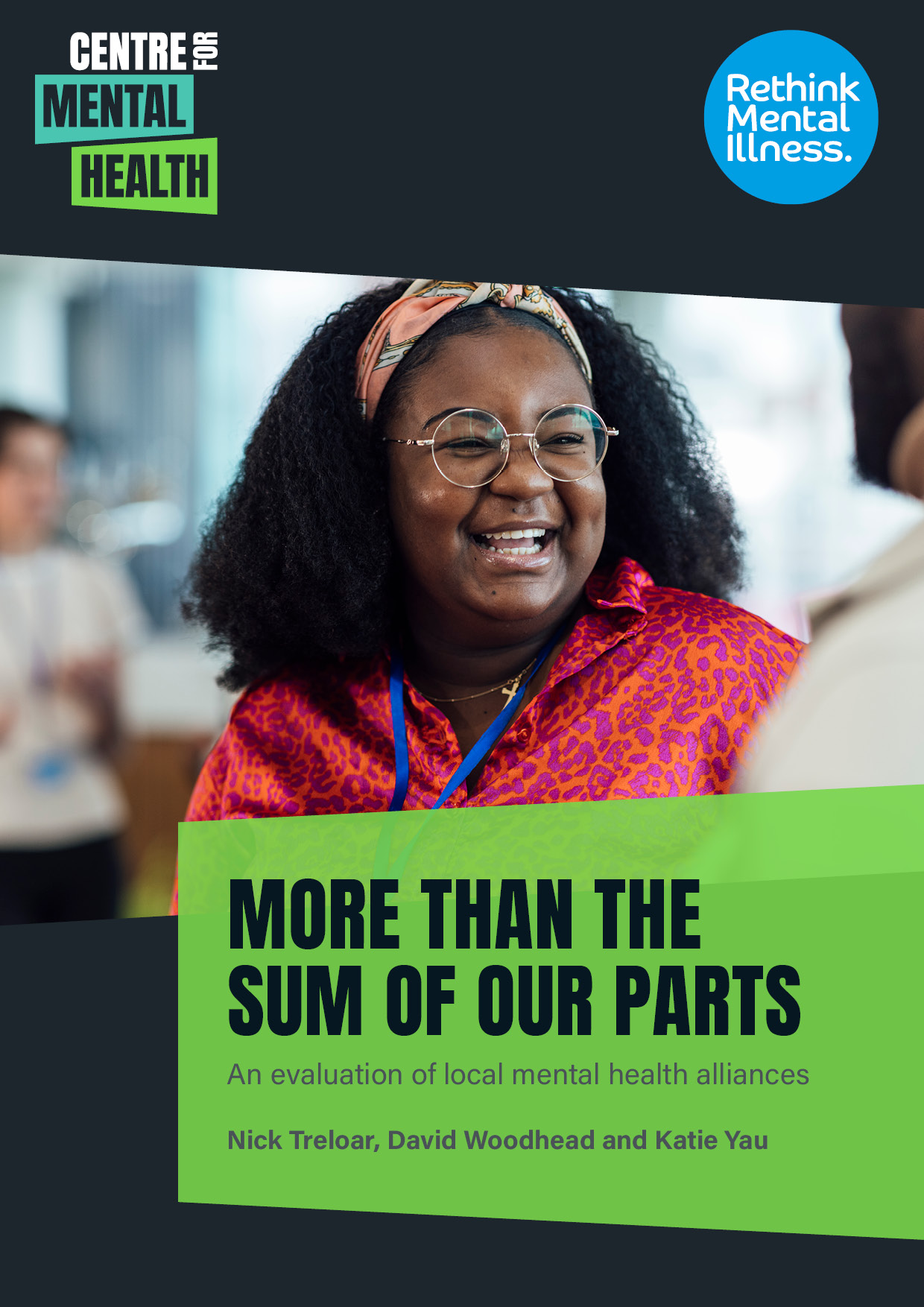An evaluation of local mental health alliances
Nick Treloar, David Woodhead and Katie Yau
The voluntary sector plays a vital role in supporting people with mental health difficulties. Many people find it easier to trust and approach organisations that are based in their communities, compared to statutory services. Yet, insecure funding and a lack of meaningful collaboration can inhibit voluntary, community and social enterprise (VCSE) organisations from providing the mental health support that people depend on.
More than the sum of our parts explores how bringing local stakeholders together – including VCSE organisations, NHS commissioners and providers of health and social care, and experts by experience – can lead to more effective and equitable support for people living with a mental illness.
Created by Rethink Mental Illness and funded by the Charities Aid Foundation, local voluntary sector-led alliances have been working toward destigmatising mental illness, improving access to support and treatment, and encouraging innovation. More than the sum of our parts examines the impact of local mental health alliances in Coventry and Warwickshire, North East Lincolnshire, Sheffield, and Tower Hamlets in London.
The report finds that mental health alliances can improve care for people whose needs have often been overlooked or poorly met, including LGBTQ+ people and people from racialised communities. By co-designing services alongside people with experience of mental health problems, mental health alliances can make support more accessible and stop people from falling through the cracks.
By presenting learning from four mental health alliance case studies, this report provides a clear and compelling roadmap for policy makers and local systems leaders to follow in order to achieve a more effective and empowering mental health service landscape.




